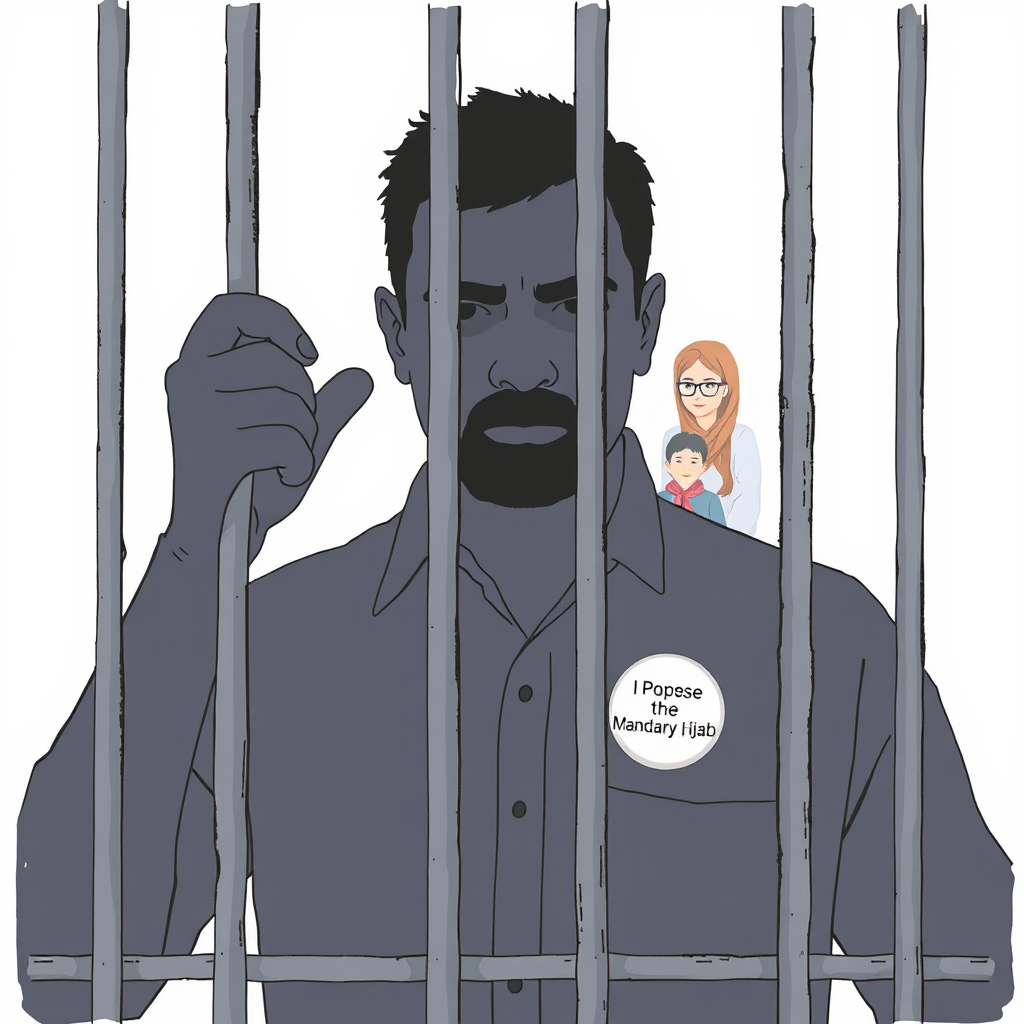Jailed Husband Fights for Iran’s Women’s Rights

Reza Khandan, the husband of prominent Iranian women’s rights defender Nasrin Sotoudeh, is currently imprisoned in Tehran’s Evin Prison, a facility notorious for its harsh conditions and political detainees. His arrest in December 2024 stemmed from his support for women’s rights and the creation of buttons emblazoned with the message, “I Oppose the Mandatory Hijab.” This wasn’t his first encounter with imprisonment for such “crimes”; he previously served 111 days in 2018.
Khandan’s story is inextricably linked to that of his wife, Sotoudeh, who herself spent over six years in Iranian prisons for her human rights work. While Sotoudeh is currently home on medical furlough due to a heart condition exacerbated by her imprisonment, Khandan remains behind bars, facing at least three more years in Evin.
Speaking from prison, Khandan emphasizes a sense of duty and privilege in defending rights, acknowledging the inherent risks in criticizing the Iranian government. He passionately argues that true democracy and development require equal rights for women, asserting that a society ignoring half its population can never achieve greatness.
His account of his December arrest details a fabricated investigation used as a pretext for his detention. He describes chilling conditions in the detention center – intentional cold, lack of food and water, and unsanitary conditions. He was denied a final goodbye with his son before being taken away.
Life inside Evin Prison is grim. Khandan describes overcrowding, limited access to food requiring inmates to collectively prepare meals with meager resources, and constant monitoring of political prisoners. He highlights the prevalence of drug use, the suppression of complaints, and his own participation in hunger strikes to protest conditions.
Khandan details the systemic cruelty within Evin, including beatings, denial of medical care, prolonged solitary confinement, and forced confessions broadcast on national television. He also points to seemingly small acts of cruelty, like requiring blindfolds for basic necessities.
The harassment extends to his family. His daughter has been threatened, his son was beaten while visiting, and the family’s bank accounts have been frozen. Despite this, Khandan and Sotoudeh remain steadfast in their commitment to justice and human rights, believing that their activism is essential for a better future for their children and the country.
Khandan speaks with admiration for his wife, praising her unwavering commitment to women’s rights and her resilience in the face of immense pressure. He also acknowledges the courage of his fellow inmates, many of whom are also imprisoned for their activism. He specifically mentions Reza Valizadeh, a dual-national radio reporter, and several lawyers imprisoned for their human rights work.
He expresses profound gratitude for the international petition calling for his release, emphasizing that such support is vital for maintaining hope and exerting pressure on the Iranian government. He believes that the arrest of activists like himself is a desperate attempt by an incompetent government to maintain power.
Khandan remains optimistic about the future, believing that progress is inevitable and that the world is moving towards greater freedom and justice. He urges leaders of authoritarian governments to learn from history and to respect human rights.
His story is a stark reminder of the human cost of oppression and the courage of those who continue to fight for a more just and equitable world. It’s a testament to the power of solidarity and the importance of speaking out against injustice, even in the face of immense risk. The international attention on cases like Khandan’s is crucial, not only for securing the release of political prisoners but also for shining a light on the systemic human rights abuses occurring within Iran.